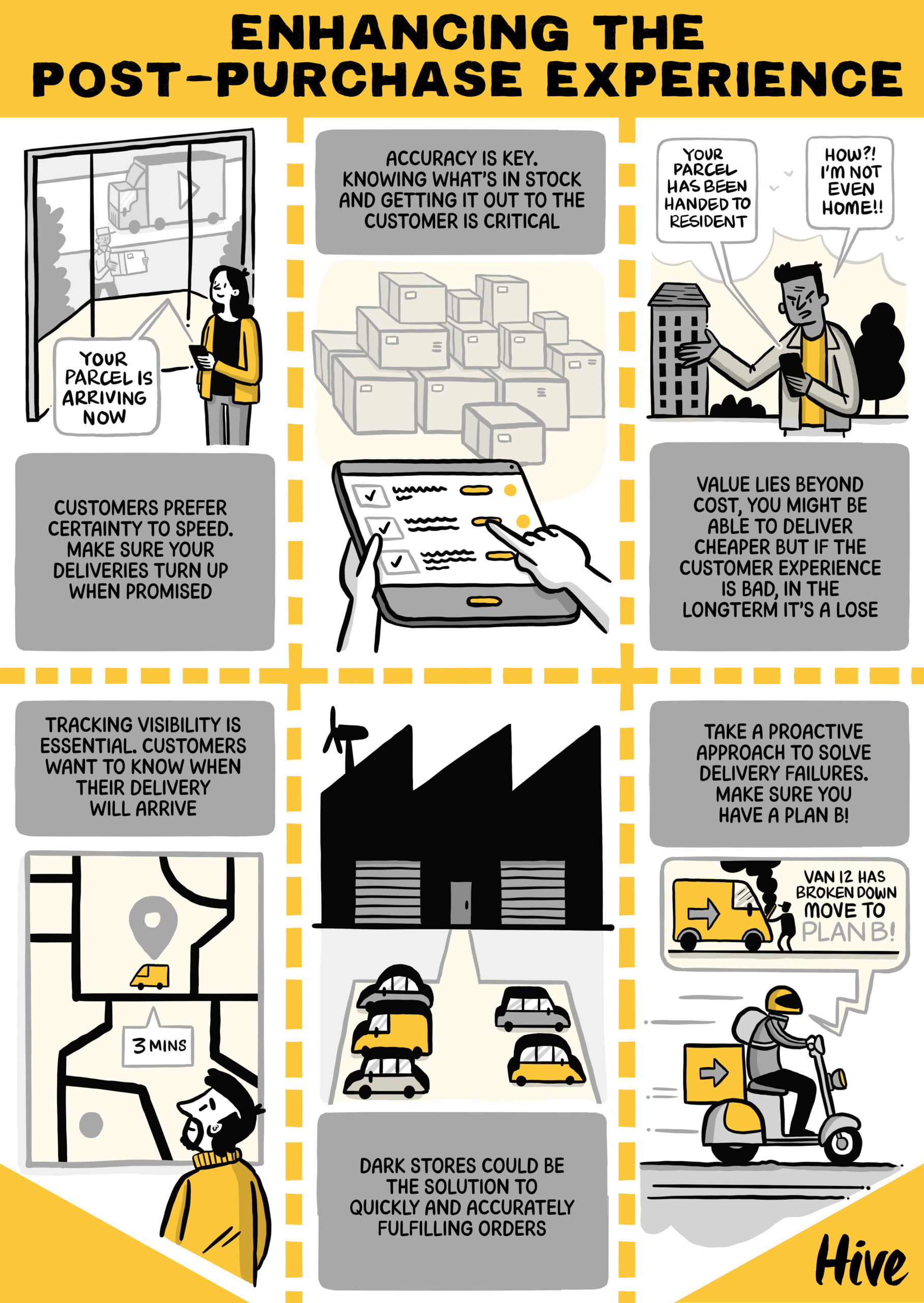Retailers are increasingly turning to innovative strategies to improve customer experience and drive sales. One powerful tool in this arsenal is the Net Promoter Score (NPS), which can offer deep insights into customer satisfaction and areas for improvement. This blog explores how retailers are using NPS, optimising logistics, and adopting new technologies to meet evolving consumer expectations
In a nutshell…
- NPS is crucial for understanding customer satisfaction, especially in fulfilment-related areas.
- Transparency and proactive communication about delivery issues can mitigate negative customer experiences.
- Self-service options for resolving delivery issues enhance customer satisfaction.
- Incremental improvements in service quality can significantly boost NPS.
- Subscription services for free delivery can drive customer retention and frequent purchases.
- Easy return processes do not negatively impact conversion rates, even if not free.
- Accurate stock control and visibility are essential for meeting delivery promises.
- Innovative approaches like dark stores and AI-driven stock management can address logistical challenges.
A closer look…
NPS in action
Retailers are finding that the majority of NPS feedback relates to fulfilment issues, making it a clear focus area for improvement. And by owning the NPS process within their supply chain teams, they can directly address customer concerns. One Retail Hive member recently utilised NPS successfully to transform passive customers into positive promoters, resulting in a 50% increase in purchase frequency from satisfied customers.

Proactive communication and offering self-service solutions drive transparency for customers and give them a sense of control. Being honest about potential delays and allowing customers to flag issues directly in the system can speed up compensation and streamline the resolution process, resulting in better outcomes for customers.
When it comes to the delivery itself, negotiating high delivery guarantees with 3PLs can be a big boost to customer trust, as well as making data-driven decisions based on frequent NPS reviews. This kind of insight means retailers can make decisions quickly and influence incremental changes which boost customer experience.
Still to do…
Enhancing returns processes is a significant focus for retailers aiming to drive in-store footfall, while also providing easy online returns. Free returns can encourage customers to visit physical stores, but offering a seamless online return option is equally crucial. We’re seeing proof that charging for the convenience of returns may not deter customers if the process is smooth and straightforward.
Post-purchase experiences need to become more personalised to meet modern consumer expectations. Retailers can leverage data to create more tailored communications and services, overcoming the impersonal nature of traditional post-purchase interactions. This personalised approach can also help transform passive customers into loyal advocates, enhancing overall customer satisfaction and driving sales growth.
Finally, members believe that optimising logistics is essential for fulfilling online orders efficiently. Accurate stock control is high on the agenda as unreliable stock data can lead to fulfilment issues and customer dissatisfaction. Implementing AI can refine stock management, reducing the need for large inventory buffers. Some retailers are exploring dark stores as proof of concept to handle fulfilment challenges in densely populated areas. Additionally, finding cost-effective and reliable last-mile delivery solutions remains a challenge. Retailers must balance speed and certainty, ensuring accuracy and reliability to drive customer confidence.
Effective technology integration across logistical systems is crucial for a seamless customer experience, providing real-time updates and proactive problem-solving to prevent delivery issues and enhance customer satisfaction. By continuously evolving their strategies and leveraging tools like NPS, retailers can build stronger customer relationships and drive long-term loyalty.



